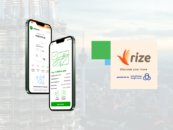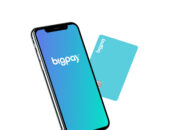
Financial Wellness Apps Touted as Differentiator in Race Against Digibanks
by Fintech News Malaysia October 7, 2021Digital banks found that financial wellness and digital money management tools are at the forefront of growing market share in the new era of engagement banking.
A recent Backbase commissioned study, conducted by Forrester Consulting revealed that 64% of Malaysian retail banking decision makers said their company is increasing spending on digital and engagement financial wellness initiatives – the highest figure in the APAC region; more than Singapore, Japan or Australia.
Bank Negara Malaysia is currently in the process of reviewing applications to grant five digital banking licenses in the first half of 2022.
Malaysia’s retail banking sector seems to be preparing for the onslaught of competition by offering customers a host of new digital features.
The retail banking sector in Malaysia is addressing this demand and ensuring banks can still compete in the digital space against the impending newcomers.
According to the retail banking business decision-makers that were interviewed; 90% said they were planning to or actively expanding their digital money management tools.
Meanwhile, 88% revealed they were planning to or actively expanding their financial wellness and digital money management tools, with almost half of them saying it was critical.

Iman Ghodosi
Iman Ghodosi, Regional Vice President in Asia Pacific at Backbase said,
“The window of opportunity for banks to build out their digital offerings is right now and the recent report revealed Malaysians have an insatiable appetite for digital offerings.
For example, 67% of consumers surveyed said they used their institution’s existing mobile app, 87% believe an excellent mobile app is an attribute they value from financial services providers, and 82% conduct their day-to-day banking via their smartphone.”
Digital banks are coming for your customers
Ghodosi believes the next six months is a critical inflection point in the digital banking space as Malaysia has five of the hottest digital banks waiting to explode into the banking scene and take market share next year.
This will lead to Malaysians wanting a higher level of customer service and flexibility for the financial services they subscribe to.
They will want to access their personal finances anytime, anywhere, through any channel, and have the necessary tools to manage it. Traditional banks may lose ground if they don’t innovate quickly.
“Now more than ever, it’s important to own the relationship with your customer. We’ve entered the Engagement Banking Era, an evolution that stresses a one unified platform approach for banking.
The number one priority in this new era is to completely re-architect the bank around the customer, moving away from siloed technology investments,”
he added.
However, progress is not without its challenges and those faced by Malaysian banks were some of the highest in the APAC region.
Of the Malaysian retail banking business decision-makers interviewed, 74% said a lack of understanding of customer needs and outcomes is a barrier to their company implementing or further developing digital money management tools.
66% said outdated legacy technology challenges their plans and 64% said organisational silos make things difficult.
Ghodosi said that there’s also a lack of understanding at legacy institutions in Malaysia on who owns the budget for these types of initiatives.
“Is it considered customer experience? Is it a corporate strategy? Or is it marketing? When in fact it is all three, and more.”
Financial literacy & protecting the vulnerable
One of the biggest motivations behind increasing money behind financial literacy isn’t profit, instead its the increased capacity banks have for caring and protecting their customers.
Through these new channels of customer interaction, banks can now meet needs they previously couldn’t, by leveraging data analytics, AI, and mobile technology to make financial recommendations and improve engagement for users.
Trust in traditional banks in Malaysia is far higher than digital banks and initiatives such as these aim to increase their reputation.
For example, 64% of retail banking business decision-makers interviewed noted that preventing exploitation of vulnerable and older customers was in their company’s plans when developing such digital tools
62% revealed they planned to assist customers to build better financial habits and 66% are going to offer financial literacy tools.
Additional features that these digital and engagement apps will offer include spending analysis, scheduling bill payments, advanced pay and income smoothing, automated savings, and retirement planning tools.
“Banks can offer so much value through these engaging digital services, while at the same time collecting valuable data from users,”
said Ghodosi.






